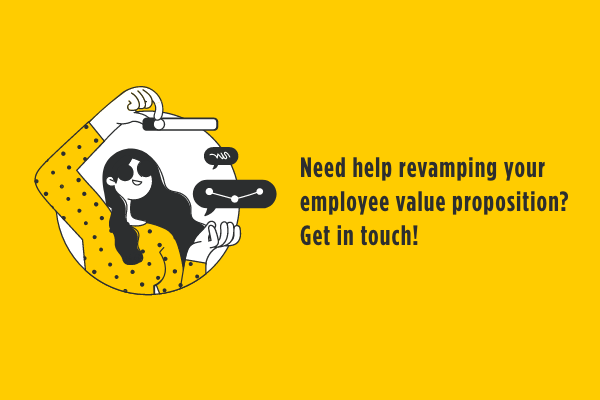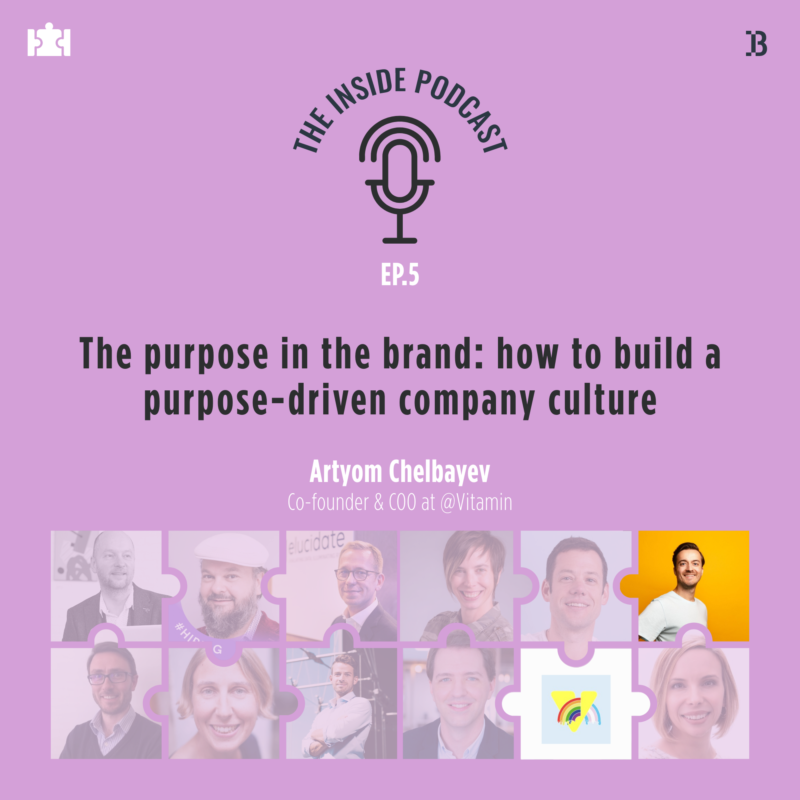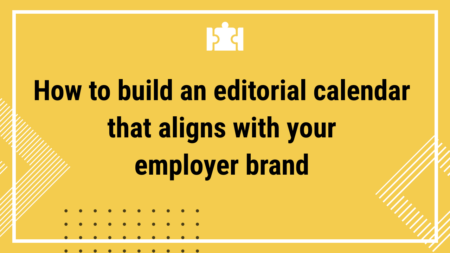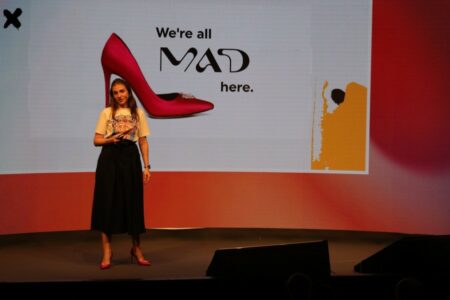Hi! My name is Georgiana! I am the CEO & founder of Beaglecat and soon you will be listening to Employer Branding: The Inside Podcast. In this podcast, I regularly talk to employer branding managers, talent acquisition managers, and human resources managers in tech companies in Germany, Romania, in the US. For more content on employer branding-related themes, go to employerbranding.tech or beaglecat.com. Stay tuned!
Overview
In the 5th episode of our 5th season, we spoke with Artyom Chelbayev, Co-founder & COO at Vitamin, a startup in Berlin with a very interesting vision – to build a strong financial future for all women. Throughout the podcast, we talked about the way diversity and inclusion have changed in the last years, but also about the importance of a genuine purpose-driven organizational culture when building your employer brand.
“Every company is an extension of the founding team”, and we couldn’t agree more, Artyom! Tune in for the full episode.
What you’ll learn by listening
- Diversity & inclusion: changes we’ve seen happening in the last few years
- Building your employer brand with purpose in mind
- Company purpose matters: why & how can you find yours?
- An overview of VSOP & its implications in preserving employee engagement
- Building a genuine company culture: start with a company values questionnaire
About Vitamin
Vitamin was brought to life in January 2021 in Berlin by our founders Andrea Fernandez and Artyom Chelbayev. The vision of the company is to build a strong financial future for all women. The mission is to change mindsets, spark conversations and empower every woman to be confident in their finances.
Gender pay gap, career breaks, part-time work, longer life expectancy – the threat of poverty in old age affects women in particular. It is therefore of the utmost importance that every woman is able to take charge of her finances with confidence. At the same time, however, the financial world is still a male domain. We are here to change that. By understanding what women need and want in their individual stages of life. And by supporting them in everyday life with their finances. In a straightforward way that fits their goals and priorities.
Podcast link
Podcast transcription – Enjoy listening to T.I.P S05Ep.5
Hi! My name is Georgiana! I am the CEO & founder of Beaglecat and soon you will be listening to Employer Branding: The Inside Podcast. In this podcast, I regularly talk to employer branding managers, talent acquisition managers, and human resources managers in tech companies in Germany, Romania, in the US. For more content on employer branding-related themes, go to employerbranding.tech or beaglecat.com. Stay tuned!
Georgiana: Hi, everyone! Good morning. This is Georgiana with a new episode of Employer Branding: The Inside Podcast. My guest today is Artyom Chelbayev. I hope I pronounced your name correctly. He is the co-founder of Vitamin and I will let him introduce himself in just a little bit.
Artyom Chelbayev: Hi, everybody! Thanks, Georgiana for having me. My name is Artyom, as you correctly pronounced. I am indeed the co-founder and CEO of a company called Vitamin. Happy to be here.
Georgiana: It’s super interesting what Vitamin does. So before you tell us that, please tell me a little bit about your background. I know you also have a female co-founder in the company, correct?
Artyom Chelbayev: Yeah, sure. So originally, I’m from Eastern Europe, from Latvia born and raised with Russian heritage. But I have quite an international background. I lived in Russia for a few years as well, quite a few years in the US, and quite a few years in Germany now. And I’ve been calling Berlin, my home for the last eight years.
I’m quite excited about that. I’ve been in various kinds of technology companies for a decade already, from really small ones up to publicly listed tech companies and everything in between. I love the power that technology holds and the impact that software can bring to the world. That’s also how we got started around Vitamin and started thinking about what is it that women, unfortunately, still to this day, struggle with when it comes to finances? And how can we apply technology and software to actually solve this at scale?
Georgiana: Got it. So your company is connected to female finance. What is female finance? And what it isn’t?
Artyom Chelbayev: Yeah, sure. Female finance is, of course, a quite broad term, right? What we think about when we talk about female finance is really understanding the kinds of challenges that women face when it comes to financial products and financial institutions. It’s quite crazy that until the 60s and 70s, for example, women couldn’t actually open bank accounts, they couldn’t sign contracts.
So this idea of, in a way, financial independence and of course, female empowerment, is in the grand scheme of things still quite fresh. And I think we are making good progress or as good progress as we can. But there’s still a lot to be done. And so, at Vitamin we focus on how to make finance more accessible for women. Right now, for example, financial institutions spend 13 times less on reaching women than they do men.
And if we look at a lot of the financial products that all of us might know, especially those living in Berlin, the names will remain unnamed. Only 10 to 20% of the user base are actually women. So clearly, there’s an issue that we have with creating access for women to the kinds of financial products that actually exist there. And so. at Vitamin we’re really focused on understanding what those challenges are; and how we can solve them in the best possible way to really create a financial product that works for women.

Georgiana: Exactly. So practically, you stated a little bit the unique value proposition for this company. But am I correct in saying that what Vitamin aims to do is to close the wealth gap for women?
Artyom Chelbayev: That is correct. That is so our vision. Our vision is to, power strong financial futures for all women. And practically what this means is, as you correctly pointed out, there is quite a big wealth gap between men and women. That’s about 30%. So globally, on average, men own about 60% of the wealth, and women own about 40; even though of course, there’s a roughly 50-50 population split in the demographic.
And so we have this bold view of the world in that by the work that we’re doing and others are doing, of course, we’re not alone in this. But we will be able to close the wealth gap, as we say, and we feel quite passionate about it because, for example, female empowerment is the UN’s sustainability Development Goal number five. I think we cannot talk about female empowerment without talking about financial independence and financial confidence. And so for us, this is a big, big mission; to help women take that next step in their financial lives.
Georgiana: Well, I think everything you’re saying is a little bit also consistent with the pay gap. And we will with all the other diversity experiences known on a day-to-day basis. And that basically takes me to the next question, which touches on the diversity and inclusion topic. And I’m wondering, I’ve seen it much more vocal if you’d like, or I’ve seen it much more emphasized recently, this topic of diversity and inclusion. Do you feel that it has changed compared to two or three years ago in Berlin? Or worldwide? What’s your take on this?
Artyom Chelbayev: Yes, yeah, absolutely. As I said, I’ve been in technology for almost a decade, between San Francisco and Berlin. And a lot of things have definitely changed. It’s also quite interesting, and an area I’m quite passionate about because when it comes to all people, topics at Vitamin. That’s actually my responsibility. So we’re quite a small team.
And so, as a co-founder, I get to do a lot of different jobs. And one of those jobs is actually being a part recruiter and part HR professional. So I have all people spend a lot of time thinking about this. And I definitely think it’s changed. You know, I can think of, even from my experience of the company I worked at five to seven years ago, at some point, we were 35 men, and maybe two or three women, which was quite crazy.
At some point, we said, look, we need to do something about this, otherwise, we’re going to be a company full of dudes. And so we did, but it was much later than, you know, that trigger point came much later than I think it should have. And of course, fast forward to 2020-2022. This is a topic that’s much more present in people’s minds. Of course, you and others talking about it, and helping companies realize that the opportunity and the impact this can have is a great thing.
Georgiana: Exactly. And it’s very much connected to employer branding, If only more founders and more HR managers understood it. How do you approach it concretely? And that’s the last question I’m asking on the topic.
Artyom Chelbayev: In a lot of different ways, to be honest with you. As I said, for me, this was something that was quite important from day one. Even before there was an official company, when my co-founder and I met, it was part of the process where we were kind of looking first, individually to build this company with others. For me, as a guy in the space, it was clear that this company will not succeed with the three white men running it.
So from day one, it was clear that we need to have a diverse team. And I’m very lucky to have a very strong female counterpart and a female co-founder. And so that was kind of an active choice on both of our parts from day one. And if we look at our personal backgrounds, we are a male and female co-founder duo. We’re both immigrant founders, but from two very different parts of the world – me from Eastern Europe and Andrea from Latin America; different backgrounds, professionally speaking, different sorts of times that we grew up in, etc.
The idea of diversity, I think, for us has been built in from day one. And we’ve just extended it from that. In addition, a vision like ours helps to attract, for example, more women. That’s just one aspect of diversity. But more women, I believe, are attracted to what we do. And so it just kind of naturally evolved from who we are as a founding team and then paying attention to what’s going on in the world.
For example, we are a remote-friendly company, maybe not remote first, but a remote-friendly company. Over the last two years, we’ve taken advantage of that opportunity and have spoken to a lot of candidates from the African continent, Asia Pacific, etc. And I think, specifically in the last two years, remote work has become more prevalent. It actually helps to find more diverse candidates as well. We also thought about the actual recruiting process, if we look at it in detail. We know, there is research that shows women, for example, feel less confident applying for jobs that they feel don’t match all of the criteria.
And so we actually did two things in our job descriptions from day one, even when it was just Andrea and me, as the two people working on this. We said, let’s do two things: let’s include the diversity and inclusion statement, which in short was we hire humans, and that doesn’t mean that we’re blind to differences, it actually means that we acknowledge and appreciate the differences that people have and actively tried to construct our team.
But we also have the statement of our job description that we call the no perfect candidate statement which basically says that there’s no such thing as a perfect candidate. And a resume is just a very tiny part of who you are as a person. So if you feel like this is something that’s interesting to you, but you feel maybe you’re not quite there, and you have some reservations, shoot us a note and let’s talk.
We’d rather have a conversation and learn more about you, and then go from there and figure out if maybe you’re the right candidate, maybe there are certain skills missing, but we can help you pick up those skills. So that’s how we deal with diversity and inclusion at Vitamin, sort of from who we are as founders right. In graining it into the DNA of our company, and then taking it into some very specific daily actions when we talk about recruitment, for example, or team engagement.
Georgiana: Well, actually, your company seems to be a very nice one from the outside. It seems to have creative and fun with this very warm culture in which every person is appreciated. And that’s consistent with what you’re saying that you actually employ humans. And so diversity and inclusion don’t only refer to women, and that’s really encouraging and nice to hear. But I’m still curious, does the fact that you have a female co-founder and the entire business model, does it attract more women? What have you discovered?
Artyom Chelbayev: I would say so, yes. I’m not sure that it’s specifically that we have a key female co-founder that makes that big of a difference. I think what really helps us is, as we said, kind of the general mission orientation of the company, as we talked about, in the very beginning, right? This is a very big purpose that we have.
I think, from my experience, again, over the last decade or so, I do believe that more people are interested in doing something that actually does some good in the world, whether that’s from a marketing point of view, from an engineering point of view. I think we are coming into a generation of teammates and team members who are just more keen to understand how is their work, positively impacting the world. And so overall, this, of course, helps us to attract those kinds of people. And then more specifically, with our product, and with our vision, of course, I think it’s more interesting for women because there’s just that much more direct connection.

I’ve been in a number of interviews, where people and candidates have said, Hey, this is great. I wanted to speak because I feel like this is actually a problem that I have read about. I like that I can relate to the customer group. I understand the needs of a customer group. And that’s why I wanted to have a chat. So I certainly think it helps a lot to have that orientation towards a female product, in that that generates more interest from candidates.
Georgiana: And if you were to think retrospectively, so to say about any differences between what keeps women and men engaged, are there any without going into stereotypes, or I don’t know, gender issues that can be a bit cliche. Because you have a small company, and when you have a smaller company, it’s easier for the founders to maybe observe the dynamic, to observe what keeps some of the groups engaged, as opposed to others.
Artyom Chelbayev: Yeah. I think it’s a very interesting question. I think, as you said, there is a danger and a risk of going into cliches. And I think all of us who deal with people in some capacity, it’s also our responsibility to be aware of that, and understand what are the different trade-offs. That said, we are a small company. 15 months ago, it was just Andrea and me, the two of us and now we’re a little bit bigger, about 20 people or so. We also haven’t had so much time, to be honest with you, to observe how is the engagement different per se, but in alignment with what we just talked about, around how we build this company. You know, the focus on diversity, on hiring humans, etc.
We rather take a view on how can we make this company work for people in the future and make sure that when they’re here, they’re happy, productive, and have everything they need to do their best work. And some of the things we’ve done there is, for example, our benefits budget is in the way set up quite flexibly, because we didn’t want to determine, you know, of course, we could go down the cliches and say, well, all of our guys go to sports and all of our female colleagues go to I don’t know, something else.
That’s definitely not the case for us. But what we did say is, look, we have a benefits budget of an X amount every single year. Let’s not give too much direction on what kind of things you can do with it. Rather, let’s have a couple of options. And maybe that’s sports, maybe that’s work from home, we have a very big learning and development aspect to it as well, of course, you know, the basics, public transportation, etc.
And then every person can actually kind of combine their own benefits package and trade-off certain components and say, Look, if I’m taking a part of my benefits, budget towards work from home kind of equipment or whatever, then that simply means that my learning and development budget gets a little bit less right, then people can kind of construct their own packages, so to speak, which we do get good feedback on that, that works for the team.
For me, personally, a topic that I feel very passionate about is employee participation in the form of the VSOP, a virtual share option program. And this was something that my co-founder and I cared about a lot from day one, making sure that the entire team gets to participate in the success of our company and their company, in that sense. And so I think rather, in the minority of German startups, at least, we do give this up to all full-time employees in different levels, of course, but we believe that’s important.
Also, of course, they’re aligned with the idea of closing the wealth gap, right? Because we need to make sure that as our company grows, and we’re able to build a successful business, the people who contribute to the success of that are able to participate in it, regardless of what level they’re in, of course, gender or any other criteria that that might be there. And something that I actually found very interesting is we already in our initial proposal on our VSOP program, we had an idea of how to push the topic further in terms of what happens to employee participation during parental breaks, because oftentimes, from my experience, and talking to many friends, usually when people go on parental breaks, the best thing of the employee participation stops, because the idea is while you’re not working, so why would you be able to participate in the continued success of a company?
We said that doesn’t work for us. Let’s push that a little bit further. I think we’ve had up to a certain number of months, you still continue investing. But then it stops. And when we actually presented this proposal to the team, we made sure to involve them in the design of it. People said and interestingly enough, not just women, but also our male colleagues said, You know what, this proposal doesn’t actually make sense. Because why would it? I remember that one, what we did, we said, for up to a certain given amount of months, your vesting kind of slows to 50% of what it was before when you were working full time.
And both our male and our female colleagues said, well, this doesn’t make sense because if you’ve already made a contribution to the success of this company, then why wouldn’t it just continue vesting. And so we interestingly got a little bit of pushback and a little bit of conversation from our team on this topic. And then Andrea and I took that with us. And, you know, gave it some thought and decided, you know, what, it’s a very good point. Why don’t we actually do it differently and be more aligned to how the team thinks about it. So that’s how we’re thinking about engagement. To make sure that we account for the different needs of different people without necessarily specifying what those needs are. And as I just said, strongly feel that VSOP and participating in the success of the company is a big, long-term component of that engagement.
Georgiana: Well, obviously, you guys have the purpose, you have managed to build a culture so successfully, and in such a warm way that I think really attracts people. In you, the two of you seem to be very, very genuine human beings. And I think the challenge is going to be to maintain all this while your scale. Yes, that’s going to be it’s going to be something to look back at in two years. Probably. We’re approaching the end. And I have one last question for you. Are there any values for your company that maybe you share? And that you feel are that you feel strongly about?
Artyom Chelbayev: Yeah, well, I think every company is an extension of the founding team. For better or for worse. So, of course, there are a lot of values that I think this company holds, that is important to the two of us as a co-founding team. We are in fact, in the process of defining and kind of shaping those values. So I wouldn’t be able to tell you exactly what they are just yet. But some of the things we just talked about, right, I think shouldn’t be as a surprise, the fact that we are hiring humans.
I think this genuine culture that you mentioned, is very important. My personal belief is that the order of priorities and building a company is people product and profit and that with great people, you can achieve a lot, even when times are a little bit more challenging and live a team that maybe isn’t as happy and isn’t as satisfied, you won’t really quite get there. So this orientation towards people towards culture, towards equality, right?
And how we deal with VSOP, for example, whether you’re on the parental break or not, is something that is quite important. Interestingly enough, and I think alluding to your question around, how do we keep this when we scale as well, we actually use something. So when Andrea and I and my co-founder and I met, we went through 60 questions, kind of we call that our values questionnaire to really understand how well we work together. And do we even want to work together?
And we found that exercise to be so helpful. I think we spent a day and a half really going in detail through how have we dealt with conflict? What is success? What kind of people do we like working with? What kind of people do we not like working with, you know, a really long list of questions, which was a very powerful tool for us. We liked it so much that we actually downsized it to 18 questions that now every person who joins the team answers as part of the interview process.
And we do hear feedback that is a little bit of an unorthodox step in the hiring process. But people do enjoy it because they really feel like, well, we are trying to get to another but also, the way we do it is we actually share our answers with the two founders, so both of the founders join the interview, and the hiring manager as well. And we actually share all of our answers to the same questions that the candidate is answering. So we try and have a very kind of open two-way conversation on this.
And we also get feedback that people really appreciate that they get a chance to get to know us as a team. And so as I think about values, as I think about scaling those values, I think some of those things are really important to have them be part of the recruiting process. Whether we keep it as this exact values questionnaire or not, I don’t know yet. We’ll figure this out. But I think this orientation towards values and living up to them is something that’s really key to building a successful team for the long term.
Georgiana: Did you come up with the questions yourself? On the outside?
Artyom Chelbayev: Hardly. I must give credit to a venture capital firm called First Round Capital in the US. They do an incredible job at creating helpful resources and content for a founder. So we used their questionnaire as the base. But we’ve also through our own experiences and through our own conversations, added several others as well. So it was a bit of a mix and match.
Georgiana: Yeah, that can be definitely a powerful tool. Cool. This has been so nice talking to you. Thank you. And good luck growing the company further.
Artyom Chelbayev: Yeah, absolutely. Georgiana, thanks a lot. Happy to share any kind of insights around how we’re thinking about building Vitamin and how we’re trying to close the wealth gap for are women. Happy to try it again.






